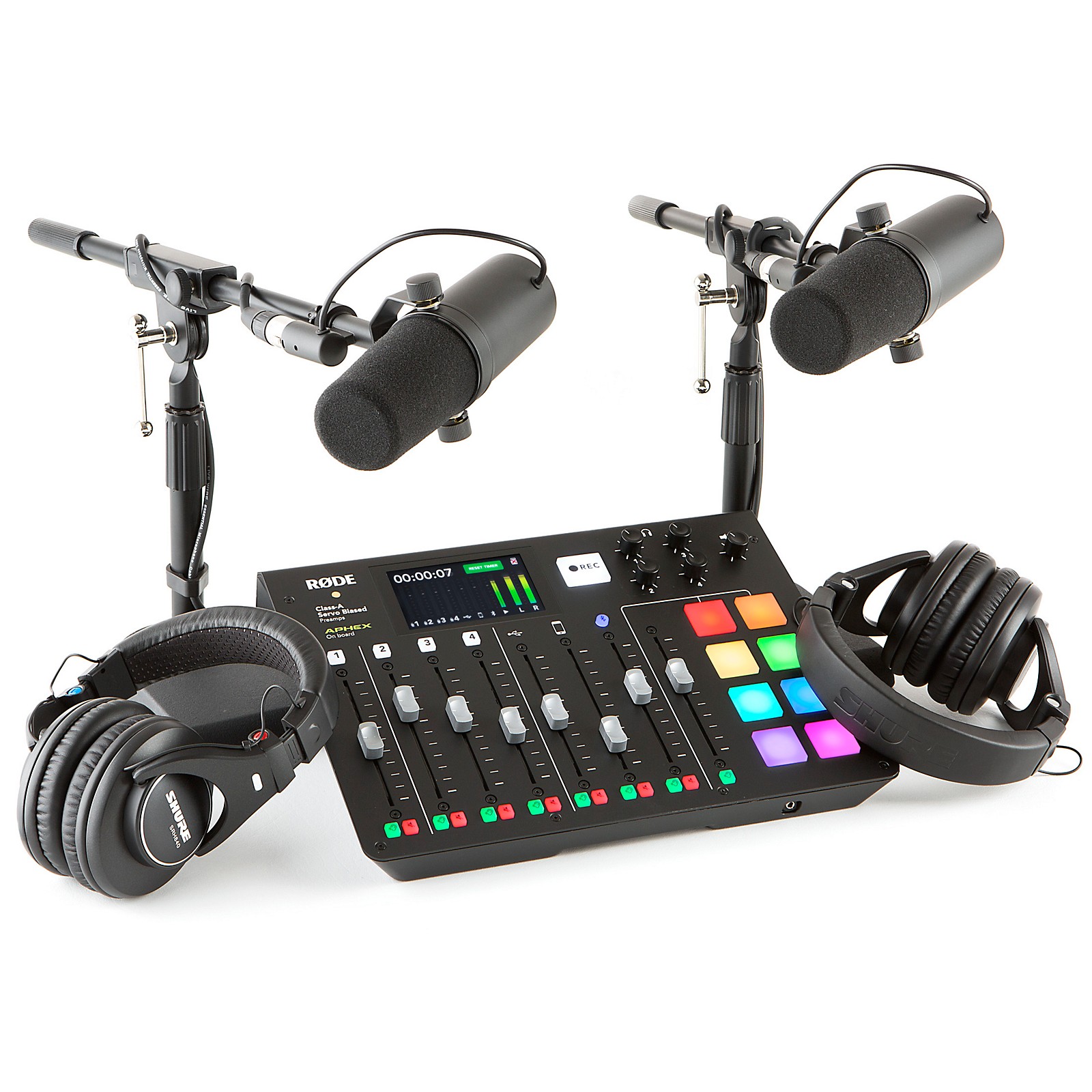

- RODE PODCASTER KIT UPGRADE
- RODE PODCASTER KIT PORTABLE
- RODE PODCASTER KIT PRO
- RODE PODCASTER KIT SOFTWARE
- RODE PODCASTER KIT BLUETOOTH
For paid software, Adobe Audition, Pro Tools, and Logic Pro are popular do-it-all programs that handle both podcast recordings and multi-track music recordings.Ī podcast recording kit should include most or all of the items outlined above, but each one has a vast price range. We’re partial to Descript not only because we’re paid to be, but also because everything you record is automatically transcribed so that the audio editing process is as easy as editing a word document.
RODE PODCASTER KIT SOFTWARE
There are good free software options out there, including Audacity and, of course, Descript. If you choose to record your podcasts on a computer, you’ll need software to do it - and regardless of how you record, you’ll need editing software.

Consider adding on a shock mount, which helps steady a large condenser microphone by suspension, and a pop filter, a thin membrane placed in front of the that prevents plosives (like the letter “p”) from exploding onto the mic. A solid mic stand not only protects your precious microphone from damage, but it also prevents unwanted background noise due to table vibrations and hand movement. When you host a podcast, and you use a mic, your mic stand is almost as important as the mic it holds. Again, your laptop and phone have mics - and they're more than sufficient to get you started. To use one, you’ll need a recording interface, which we cover in item number 3. While a bit pricier, XLR mics use three-prong connectors that produce a balanced audio signal with little noise or electrical interference.
RODE PODCASTER KIT UPGRADE
For higher-quality sound, upgrade to an XLR microphone. Many beginning podcasters like the convenience of a USB microphone, which plugs directly into your computer without the need for an audio interface. The centerpiece of any pro-level podcast setup is a high-quality microphone. Wireless headphones use Bluetooth, which compresses audio frequencies, and noise-canceling headphones add extra frequencies to the mix to shut out your environment, making both of these options less than ideal for monitoring your recording. The best sound isolation comes from closed-back, wired studio headphones. Whether you’re recording or editing, a set of high-quality studio headphones isolate sound and give you a clear sense of what you’re making. If you're going to start buying equipment, start with headphones. But if you're ready to up your game, or you just really want to buy some stuff, here's where you should start. Before you start buying this stuff, try just recording on your laptop or phone, making a rough edit in Descript, and publishing. From cameras to computing power to editing software, video adds a whole new dimension to the podcast process.Īctually, a podcaster only needs one item: a podcast. Does my podcast include video elements? Video podcast equipment is more substantive than audio equipment.If you’ll be at home, that portion of your budget may be better spent on a great microphone, like the Shure SM7B.
RODE PODCASTER KIT PORTABLE
Where am I recording? If you’re doing field recordings or traveling to meet your interview subjects, it makes sense to invest in a portable digital recorder, like the Zoom H6 Pro.Podcast equipment comes in at many price points, so it’s a good idea to have a plan before you start spending. What is my budget? Decide how much money you want to spend on your podcast equipment bundle.What about music and live sound effects? These might call for a podcast soundboard built into your mixer.
RODE PODCASTER KIT BLUETOOTH
Do some guests call in over the phone? Get a mixer that handles Bluetooth audio. Are you a group of friends chatting around a table? In that case, you need more mics and stands.

The equipment needed for podcasts depends on the scope of each project - sometimes you just need a single mic, and sometimes you need a few mics for all of your guests plus a mixer to make sure everyone sounds good. Questions to ask yourself before buying podcast equipment


 0 kommentar(er)
0 kommentar(er)
